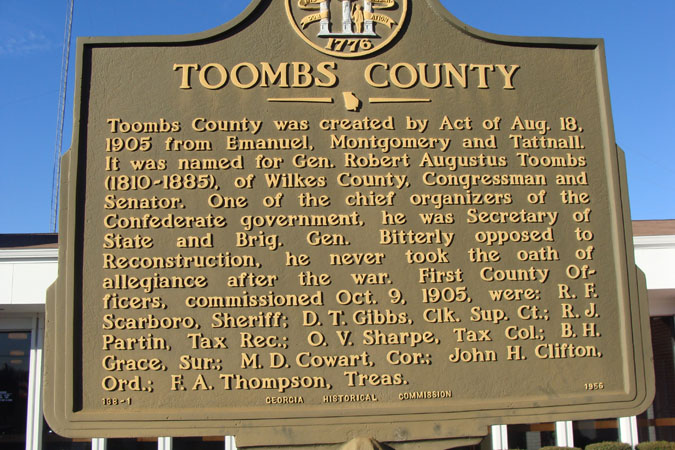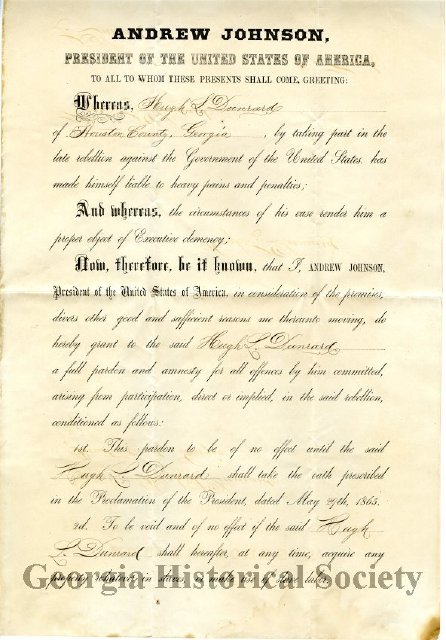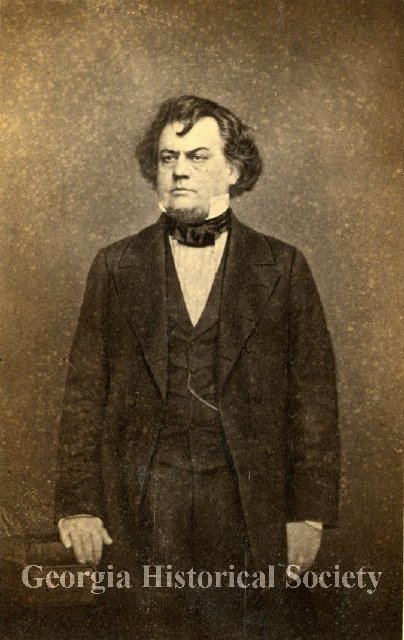To further explore this year’s Georgia History Festival theme, “The United States Constitution: Ensuring Liberty and Justice for All,” January’s #MarkerMondays explore themes from Article VI of the U.S. Constitution, specifically how Georgians have regarded the Supremacy Clause and the Oath or Affirmation Clause.

This week's #MarkerMonday highlights Robert Augustus Toombs and oaths of office and allegiance around the time of the Civil War. Toombs was a U.S. Senator from Georgia who believed that not securing southern “property,” or slaves, in the new territories was a violation of the Senators' oaths of office and “constitutional obligations.” He resigned his Senate seat on February 4, 1861, and became a key organizer of the Confederate government, its first Secretary of State, and subsequently a Brigadier General in the Confederate Army. To avoid imprisonment at the end of the war, Toombs fled approaching U.S. soldiers and left the United States.

In the interest of reasserting “the authority of the Government of the United States” and restoring peace and order, President Andrew Johnson issued a proclamation of pardon on May 29, 1865, for those who had supported the Confederacy, wherein amnesty was dependent on an oath of allegiance. After Robert Toombs returned to the U.S. in 1867, he met with President Johnson but did not seek any formal amnesty, nor take Johnson’s pre-described oath: “I, _____, do solemnly swear (or affirm), in presence of Almighty God, that I will henceforth faithfully support, protect, and defend the Constitution of the United States and the Union of the States thereunder, and that I will in like manner abide by and faithfully support all laws and proclamations which have been made during the existing rebellion with reference to the emancipation of slaves. So help me God.”

Although considered a citizen of the State of Georgia, Robert Toombs never regained his U.S. citizenship. A fierce opponent of Reconstruction, Toombs became a leading anti-Reconstructionist who unapologetically advocated resistance to Radical Republican rule and those he deemed enemies of the South. His efforts earned him the moniker “unreconstructed Georgian.” Toombs County was created in 1905.
For more information on Robert Toombs and oaths of allegiance, follow the links below.
Today in Georgia History “Robert Toombs”
New Georgia Encyclopedia “Robert Toombs (1810-1885)”
UVA Miller Center “May 29, 1865: Proclamation Pardoning Persons who Participated in the Rebellion”
GHS houses several collections related to Robert Toombs and pardons from President Johnson.
Robert Augustus Toombs letters, petitions, and writs, 1834-1871.
The correspondence of Robert Toombs, Alexander H. Stephens, and Howell Cobb / edited by Ulrich B. Phillips.
Hugh L. Dennard pardon and loyalty oath, 1865-1867.
William Neyle Habersham pardon, 1865 July 14.
“The Life of Robert Toombs” by Ulrich B. Phillips
The Georgia Historical Quarterly published an article related to Robert Toombs that can be accessed on JSTOR. If your library does not have access to JSTOR, you can go to www.jstor.org and create a free MyJSTOR Account.
